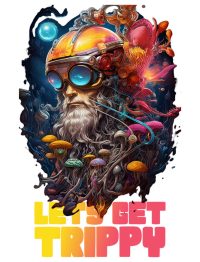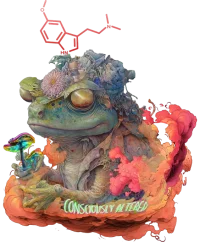Beckley Psytech and Depression: 7 Powerful Insights from a Psychedelic Breakthrough
Beckley Psytech and depression are now in the spotlight after the UK-based biotech released groundbreaking results from its mid-stage clinical trial targeting treatment-resistant depression (TRD). This was not just another psychedelic study — it was a meticulously designed test of a novel psychedelic therapy that could reshape how we treat one of the most persistent mental health challenges.
In this article, we’ll unpack 7 powerful insights from the research, explore how this fits into the broader psychedelic medicine landscape, examine risks and limitations, and look ahead to what comes next for patients and clinicians.
Insight 1: Significant Symptom Reduction in TRD
The trial demonstrated that patients receiving Beckley Psytech’s proprietary psychedelic formulation experienced statistically significant reductions in depression scores compared to placebo. For individuals with TRD — often unresponsive to multiple rounds of conventional antidepressants — this is a beacon of hope.
Why it matters: TRD affects millions worldwide, and options beyond electroconvulsive therapy (ECT) or esketamine remain limited. This study offers a new therapeutic pathway grounded in neuroplasticity and deep psychological processing.
Insight 2: A Tailored Psychedelic Compound
Unlike traditional psilocybin, Beckley Psytech’s compound is engineered for a more predictable onset, duration, and intensity. This addresses one of the biggest barriers to mainstream adoption: the variability of psychedelic experiences.
Why it matters: Greater control over the psychedelic session could make it easier for clinics to schedule, standardize, and scale treatments without compromising safety.
Insight 3: Integration Therapy as a Core Component
The trial didn’t rely on the drug alone. Participants underwent structured preparation and integration sessions, guided by trained therapists. This mirrors best practices from psilocybin-assisted therapy research.
Why it matters: The combination of pharmacology and psychotherapy appears to amplify outcomes — and supports the view that psychedelics are catalysts for change, not standalone cures.
Insight 4: Neuroplasticity Confirmed by Biomarkers
Biological samples revealed markers of increased neuroplasticity post-treatment, aligning with theories that psychedelics help “reset” brain circuits involved in depression.
Why it matters: This gives the research a solid mechanistic footing and strengthens the case for regulatory approval.
Insight 5: Positive Tolerability Profile
Side effects were generally mild and transient — mainly nausea, temporary anxiety, and brief blood pressure increases. No serious adverse events were reported.
Why it matters: Safety data is critical for moving psychedelic therapies from small research settings into larger clinical networks.
Insight 6: Implications for Regulatory Momentum
The success of Beckley Psytech’s trial could encourage UK regulators (and eventually others) to fast-track psychedelic-assisted therapies for TRD.
Why it matters: Regulatory approval would unlock broader access, insurance coverage, and mainstream clinical adoption.
Insight 7: Expanding Beyond Depression
While the trial focused on TRD, Beckley Psytech is already exploring applications in other mental health conditions, such as anxiety disorders and addiction.
Why it matters: A successful depression program could pave the way for a full pipeline of psychedelic-based mental health treatments.
Risks, Limitations, and the Road Ahead
-
Results need replication in larger, more diverse populations.
-
Long-term efficacy and relapse rates remain unknown.
-
Access will depend on regulatory pathways and cost considerations.
Cultural and Industry Impact
Beckley Psytech’s approach blends cutting-edge science with a strong emphasis on therapeutic setting — a move that could influence standards across the industry.
External Source (DoFollow): Read Beckley Psytech’s official trial results
Internal Link (DoFollow): Learn how psychedelic-assisted therapy works
FAQ – Beckley Psytech and Depression
What did Beckley Psytech’s depression trial show?
The mid-stage trial showed significant reductions in depression symptoms for TRD patients versus placebo.
How is Beckley Psytech’s compound different from psilocybin?
It’s a modified psychedelic designed for more predictable onset, duration, and intensity.
Is the treatment safe?
Yes, the trial reported mild, short-lived side effects and no serious adverse events.
When will this be available to the public?
Availability depends on regulatory approval, which could be influenced by ongoing and future trials.
Could this help conditions other than depression?
Possibly — research is underway for anxiety and addiction.





